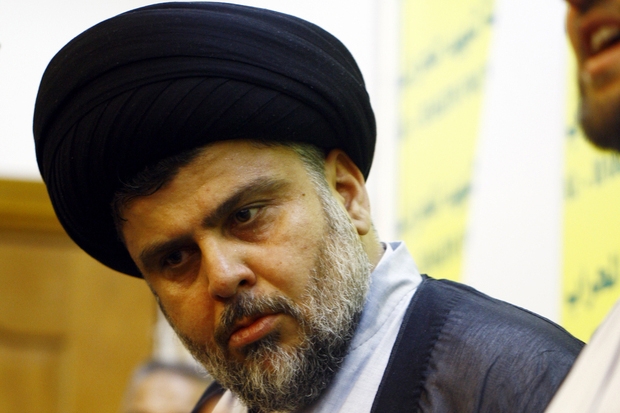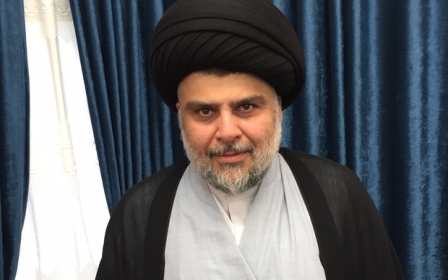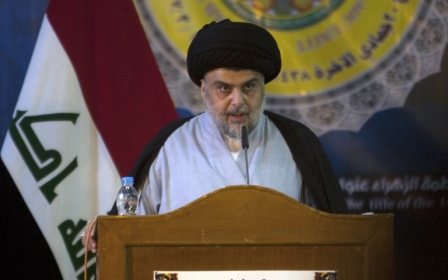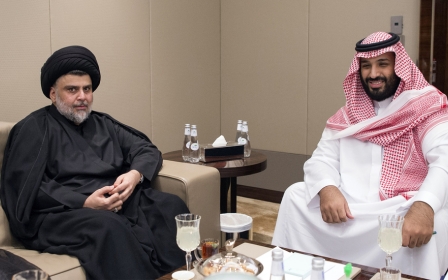Iraqi Shia leader Sadr visits UAE, boosts ties with Sunni states

Influential Iraqi Shia cleric Muqtada al-Sadr arrived in the United Arab Emirates on an official visit on Sunday, al-Arabiya said on its website.
Sadr met Sheikh Mohammed bin Zayed, crown prince of Abu Dhabi and supreme commander of the armed forces, at al-Shati palace in the capital, according to the National, a UAE website.
Also present were Sheikh Abdullah bin Zayed, UAE minister of foreign affairs and international cooperation, Ali Mohamed Hammad al-Shamsi, deputy secretary-general of the Supreme National Security Council, and Mohammed al-Mazrouei, undersecretary of the crown prince court of Abu Dhabi, the National said.
During his visit, Sadr is expected to meet with UAE officials to discuss regional developments as well as the latest efforts in the fight against the Islamic State (IS) group on the ground, according to al-Arabiya.
It will be the second such trip in as many months for Sadr, who commands a large following among Iraq's urban poor. He visited Saudi Arabia at the end of July.
Sadr comes from a prominent Shia family and is the fourth son of the respected Shia cleric, the late Grand Ayatollah Mohammed Sadeq al-Sadr, al-Arabiya said. His last visit to the Gulf came in 2006.
The Emirati government was to send a special plane to fly Sadr to the UAE and return him to Iraq, according to a statement on the cleric's website.
The cleric is one of few Iraqi Shia leaders to keep some distance from Shia Iran, Saudi Arabia's regional rival and the main backer of Syrian President Bashar al-Assad. In April, Sadr called on Assad to "take a historic heroic decision" and step down, to spare his country further bloodshed.
Sadr's office said his meetings at the end of July with the Saudi crown prince, Mohammed bin Salman, resulted in an agreement to study possible investments in Shia regions of southern Iraq. The Saudis will also consider the possibility of opening a consulate in Iraq's holy Shia city of Najaf, he said.
Sadr also announced a Saudi decision to donate $10m to help Iraqis displaced by the war with IS in Iraq, to be paid to the Iraqi government.
Baghdad and Riyadh had announced in June they would set up a coordination council to upgrade ties, as part of an attempt to heal troubled relations between the Arab neighbours.
Saudi Arabia reopened its embassy in Baghdad in 2015 after a 25-year break, and Saudi Foreign Minister Adel al-Jubeir made a rare visit to Baghdad in February.
New MEE newsletter: Jerusalem Dispatch
Sign up to get the latest insights and analysis on Israel-Palestine, alongside Turkey Unpacked and other MEE newsletters
Middle East Eye delivers independent and unrivalled coverage and analysis of the Middle East, North Africa and beyond. To learn more about republishing this content and the associated fees, please fill out this form. More about MEE can be found here.




